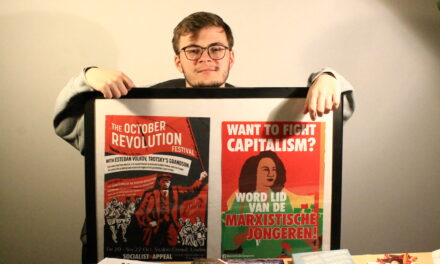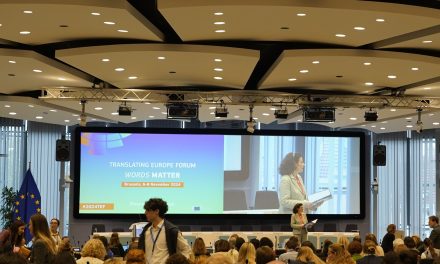For the 20th year in a row, a film festival in Brussels has shined its light on the LBTGQ+ movement. At the beginning of November, a ten-day-long film festival took place in the capital of Belgium. Celebrating gender and sexuality in all forms, but also raising awareness about being queer and their struggle to be accepted as who they are in the east of Europe.
When the second Thursday of November arrived, the gates to five different cinemas in Brussels stood wide open to welcome their guests to the 20th anniversary of the Pink Screens queer film festival. A festival celebrating gender and sexuality in all forms, showing movies made by gay directors, played by transgender actors, and picturing the struggles that are consistent in the ordinary life of a queer person
Each year’s event features a certain topic to put some extra focus on an issue and a more concrete problem. What that is, is not always covered in the movies, but the festival also arranges lectures and discussion-hours to debate and inform.
This year the theme is well covered in the screenings and one of the organizers of the festival, Clémentine Delisse, explain it as a topic that has never been more up-to-date: “We were talking about the theme when we realized that several movies on the schedule are about queer people in the east of Europe, trying to live their lives in peace and harmony. So, the theme and slogan of 2021 became: “And in east, nothing new?”


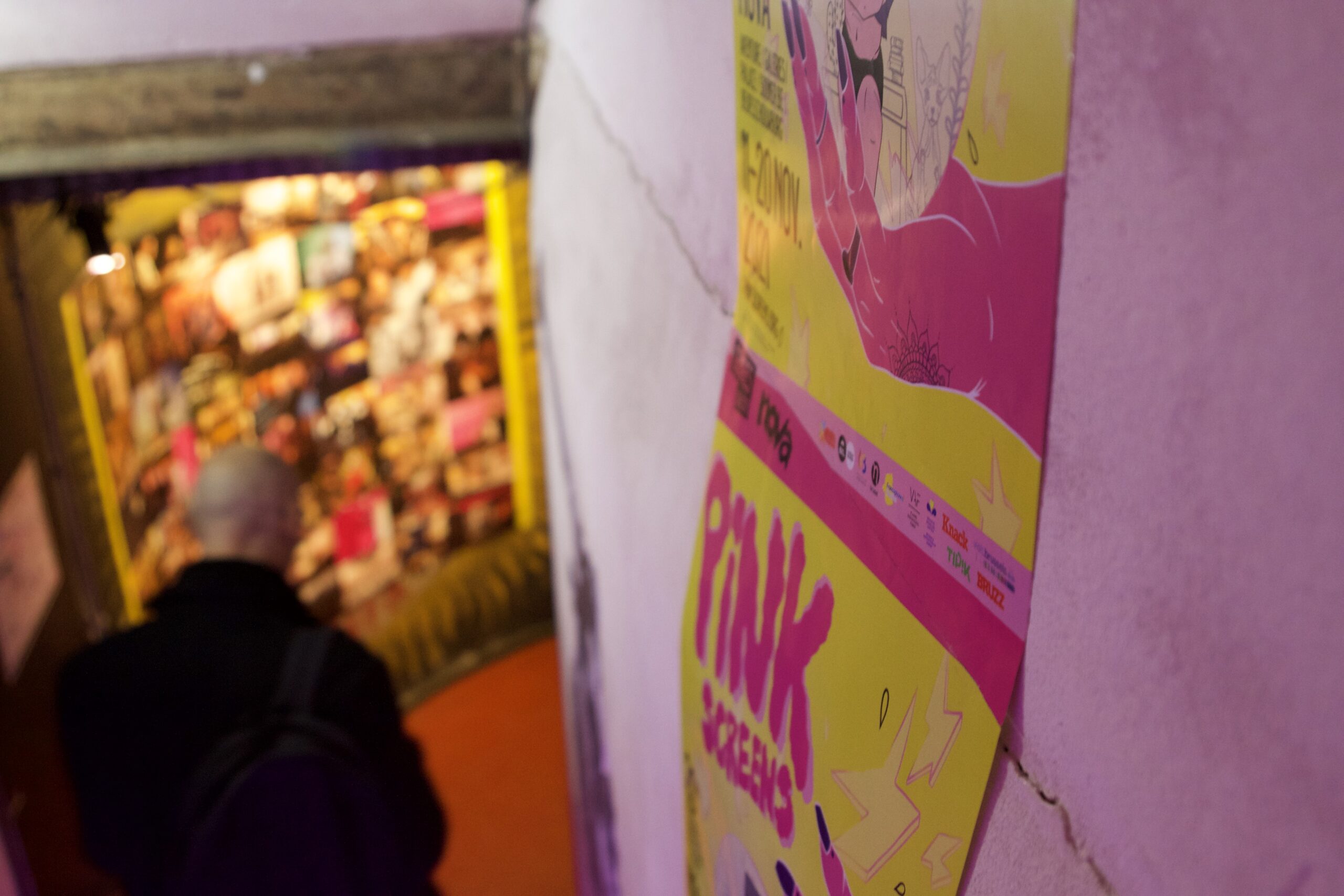
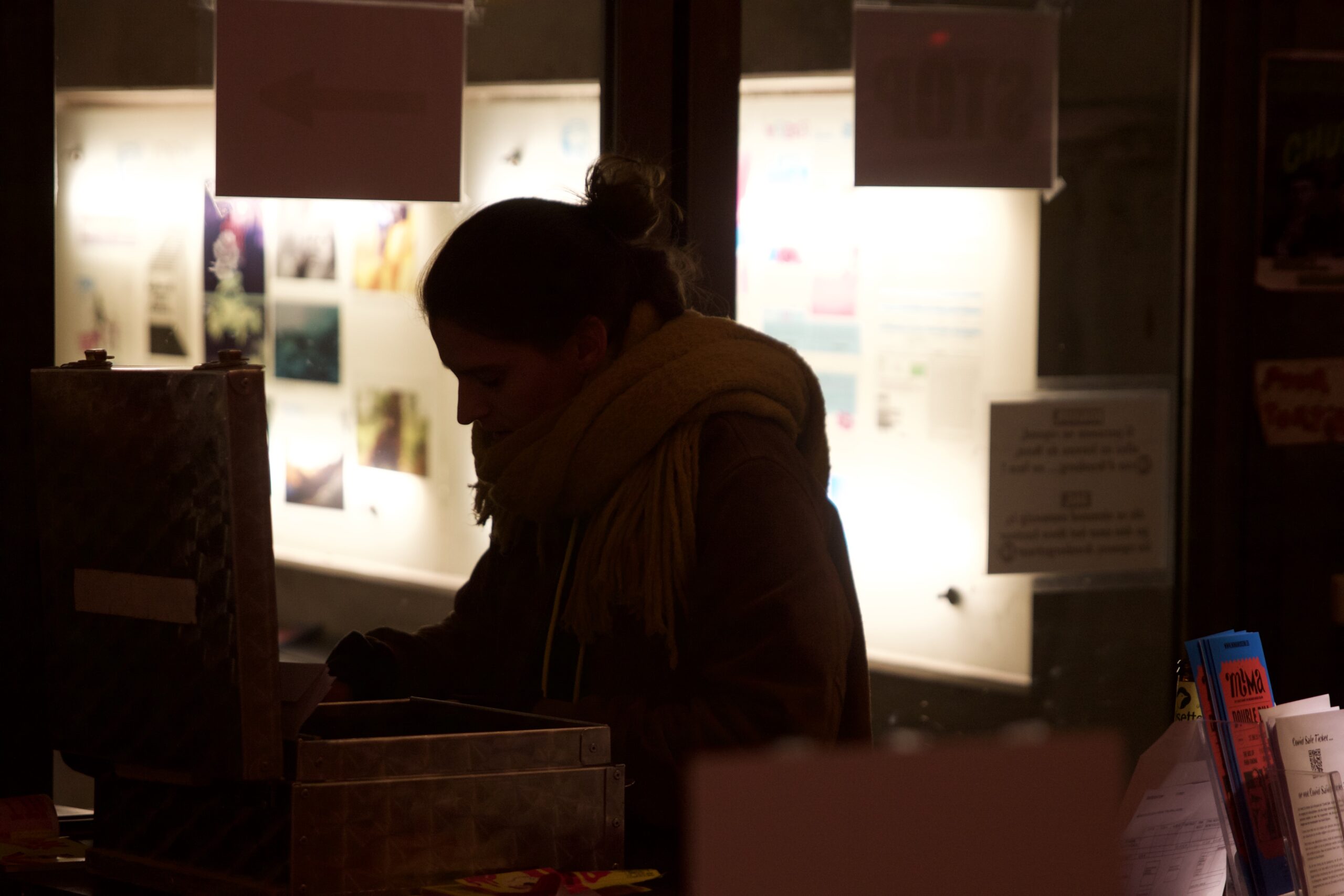
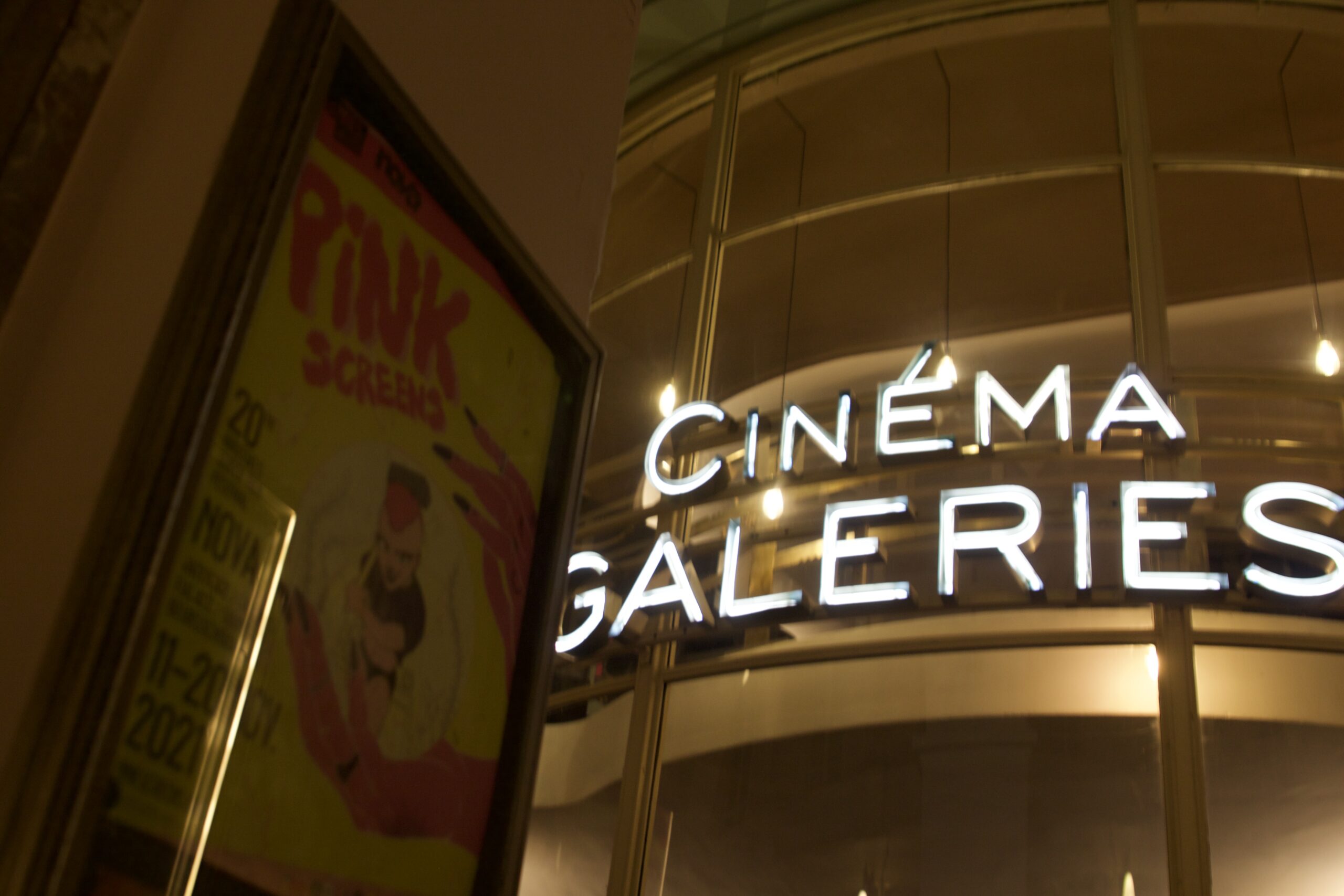
She refers to discrimination against queer people in the eastern part of Europe, and the laws that still prevent them to live their life like everybody else.
For example earlier this year Hungary put a new law into force, which forbids LBTGQ+ people to appear in commercials, student literature, or anything shown on television. And in Romania, according to research from Karolinska Institutet in Sweden, only 20% of all homo- and bisexual people, are open with their sexuality.
Arriving at an EU summit six months ago, Viktor Orbán, the prime minister of Hungary tried to present homophobic policies as a way of protecting national values: “It’s not about homosexuals, it’s about the kids and the parents,” also adding that he was a “freedom fighter”.
Someone who has experienced homophobia and xenophobia in the eastern part of Europe is Eugen Jebeleanu, a Romanian movie director feeling it has become his responsibility to talk about the human rights for gay people: “I feel that I have to do movies and theatre covering this topic. As a gay person in Romania myself, I feel a responsibility and there are not a lot of stories in film, theatre, or other fields of art that tell you about the problems within our community.”
On the second day of the film festival in Brussels, the rain started to pour. The people standing in the growing queue outside of the cinema were no longer in a vertical line, but in a cluster trying to give every single person a fair share of the roof. Each night has a main event. A movie, shown at 9.30 pm. The screening is followed by a guest answering questions from the audience when the ending applauds has silenced. Tonight the movie is “Poppy Field”, directed by Eugen Jebeleanu and the guest of the night is the supporting actor Radouan Leflahi.

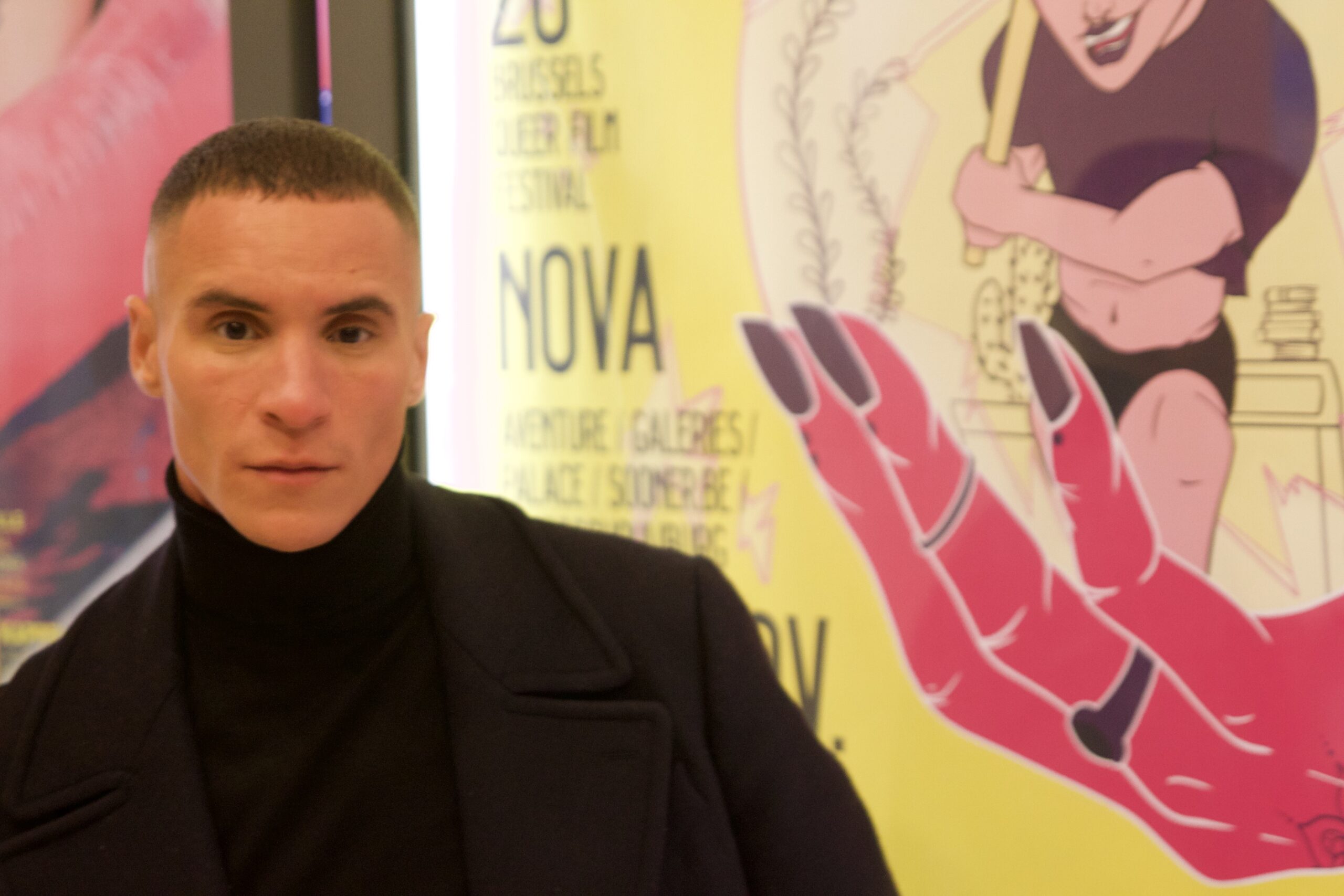

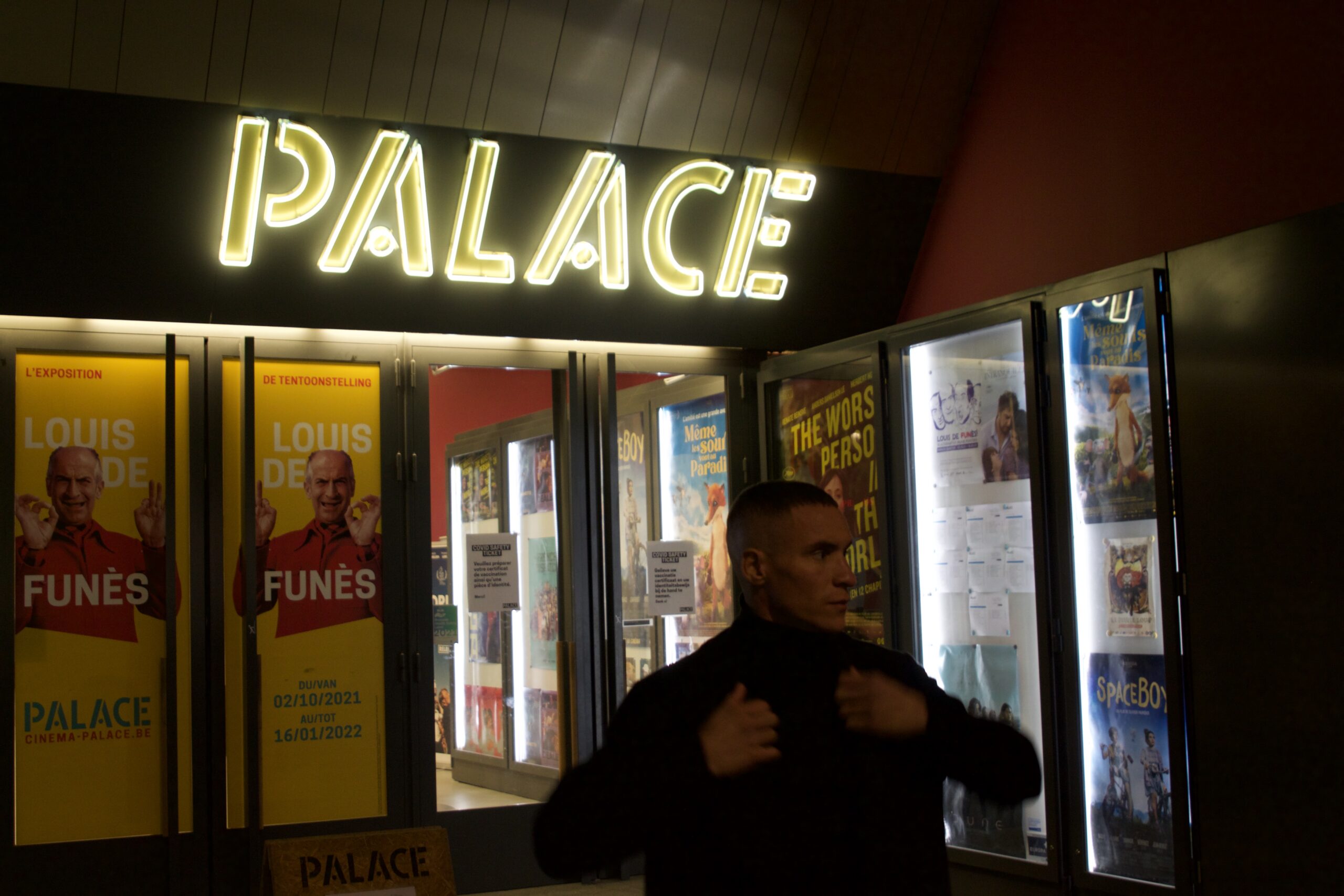
The movie follows the struggle of a young, gay, Romanian police officer who tries to find the balance between two opposing parts of his identity. Radouan Leflahi plays his french boyfriend, Hadi: “I loved working with Eugen, he made my role feel really important, and even though I can see much of myself in Hadi I think he helped me to perfect the role in a movie with such a heavy and strong message.”
Eugen Jebeleanu does not have to go far back in time to think of the last time he experienced homophobia in Romania: “That decision-makers in my country still have issues with our people is clear. I was trying to get funds from our national movie commission for a theatre performance about a transgender person. I applied three times and never got it. I actually got funds for this film, which was a bit surprising, but when it was released there were cities in Romania that didn’t want in in their cinemas. So yes, it’s obvious.”
Leaving The Palace the rain has ended and people are back on the streets. It is already past midnight but for some, the night has only started. For ticket-holders to the festival, the afterparty continues at rainbowhouse, just a five-minute walk away. For Eugen Jebeleanu the bed is calling, and tomorrow he has to travel to another place, for another festival, to promote his movie and the moral of the story: “Being a realist, in the end, I don’t think that art can change everything in the society. But by doing these films we can bring these topics to light, and if people start to talk with their family, colleagues, and friends after leaving the cinema, I think it´s at least something.

